Let there be Liatris
Tipped off by my friends David and Jolyn about the biggest colonies of Liatris mucronata they’d probably ever seen, on October 7th and again on October 8th I went a bit east of Interstate 35 in Buda to see those enormous stands of the wildflower known as blazing-star and gayfeather. This view is from the still-cloudy morning of my second visit. What you see here is part of one colony, and if you gaze out onto the slope at the upper right you can make out the faint (because distant) purple of another large Liatris colony that I also hiked over to.
© 2014 Steven Schwartzman

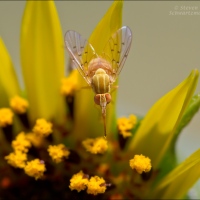
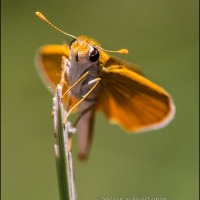
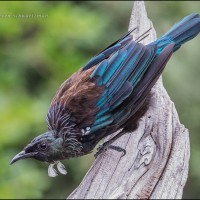
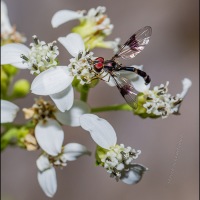
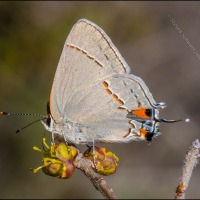
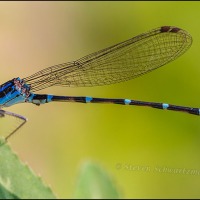
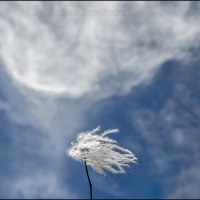
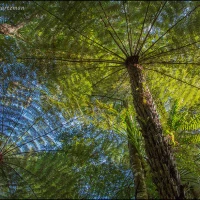
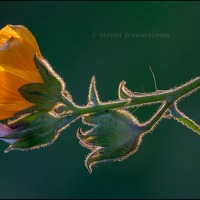
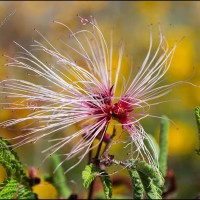
In the past, I believe, I have seen pictures of enormous bluebell colonies in Texas and am not surprised to see that you have large colonies of other species. I am envious of the wide open spaces and the giant fields of flowers that fill them.
Steve Gingold
October 29, 2014 at 6:10 AM
Some of the species that have appeared here that can form big colonies are the bluebells you mentioned, bluebonnets, broomweed, rain-lilies, greenthread, Indian blanket, snow-on-the-prairie, snow-on-the-mountain, and Indian paintbrush. My standard exhortation to you is: come on down.
Steve Schwartzman
October 29, 2014 at 8:19 AM
Certainly does light up the landscape.
Gallivanta
October 29, 2014 at 6:16 AM
We see eye to eye, and I say aye-aye to that.
Steve Schwartzman
October 29, 2014 at 8:20 AM
Yes, I very much like the open perspective which is not usual for images posted here. It’s nice to see a bit of the Texas countryside. Beautiful … even with the grey skies above.
Pairodox Farm
October 29, 2014 at 8:26 AM
It’s true that I feature a lot more closeups than anything else, but once in a while I balance that a little with an out-and-out landscape. This one goes a long way to redress the balance.
Steve Schwartzman
October 29, 2014 at 2:09 PM
Zowee!!!
dhphotosite
October 29, 2014 at 9:40 AM
I’ll see your zowee!!! and raise you wowee!!!
Steve Schwartzman
October 29, 2014 at 2:09 PM
That is such a beautiful sight! It’s lovely to see the open countryside and skyline where these flowers grow as well.
Cathy
October 29, 2014 at 10:18 AM
Pairodox also commented on enjoying an open view. We don’t have a lot of great landscapes per se in the Austin area (nothing like what I saw on my trip to the Southwest a month ago), but a field of wildflowers like these does a lot to embellish even a not-so-scenic scene.
Steve Schwartzman
October 29, 2014 at 2:12 PM
Love wildflowers, your photo does a wonderful job of showing the beauty they bring to our world.
Charlie@Seattle Trekker
October 29, 2014 at 5:46 PM
And a chaotic beauty it is.
Steve Schwartzman
October 29, 2014 at 7:20 PM
Now, imagine all of these fluffy and gone to seed, and that’s how thick they were when I was in Kansas last fall. I wondered then what they’d look like in full bloom, and here they are. They remind me of heather, especially the haze on the far hills, and that reminds me of this fine wildflower song.
shoreacres
October 29, 2014 at 8:56 PM
In around 1999 I saw great colony of these fluffy and gone to seed in northeast Austin. In subsequent years, unfortunately, the property was mowed, and the Liatris never came back close to its original force.
I hadn’t heard the version of the song you linked to, which I like. I first learned the song from an early Joan Baez album:
Steve Schwartzman
October 29, 2014 at 9:02 PM
I very much like this version, too. I’m sure you remember it was on the album called “Farewell, Angelina.” That was my introduction to Baez.
shoreacres
October 30, 2014 at 8:22 PM
I still have that album. I believe the first album of hers that I got to know was “Joan Baez in Concert, Volume 2.”
Steve Schwartzman
October 30, 2014 at 10:59 PM
The clouds add to the atmosphere of this beautiful shot. Love sailing out along that long view to the faint field of liatris, with the foreground liatris seeming almost to wave at us as we pass.
Susan Scheid
November 5, 2014 at 12:24 PM
If you’d asked me ahead of time, I probably would’ve said I’d prefer a beautiful blue sky to brighten the scene and harmonize with the color of the Liatris. That’s not what greeted me, but these clouds created a moody scene that has its own charm, and I’m glad to hear you were among the charmed. As for the Liatris spikes: long may they wave.
Steve Schwartzman
November 5, 2014 at 2:45 PM
Indeed~ there is nothing like a good Liatris year and this is a gorgeous shot of a nice colony. My Pacific NW roots are going to show here when I say I much prefer cloudy skies with all that luscious purple.
melissabluefineart
November 12, 2014 at 8:39 AM
I don’t think I knew you’re originally from the Pacific Northwest. I was born in Tacoma but lived there only as an infant and of course have no memory of that.
One advantage of an overcast sky like this is that the light reaching the ground is soft and brings out rather than washes out the saturation of the colors (in this case of the Liatris).
Steve Schwartzman
November 12, 2014 at 1:03 PM
My early days were spent in Texas, Montana and upstate New York, I’m told, but I imprinted on northern CA and Tacoma. To this day I find bright sunlight harsh and glaring 🙂
melissabluefineart
November 14, 2014 at 8:41 AM
[…] seed head that I photographed on a redder-than-usual stalk. I also noticed a single spike of gayfeather (Liatris punctata var. mucronata) that had turned fluffy and that the sun lit […]
Non-minimalist and minimalist fall color | Portraits of Wildflowers
December 12, 2021 at 4:28 AM